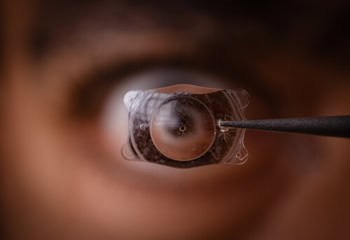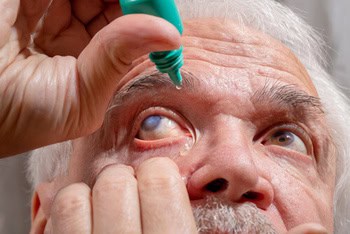Training Eyes After Cataract Surgery: What To Expect After Cataract Surgery And How To Get Your Best Vision Back
While the concept of “training eyes after cataract surgery” might be commonly mentioned, it’s important to understand the process. It’s not about specific exercises but rather about allowing your brain to adjust to the new lens and the sharper vision it provides.
This guide will answer your questions about what to expect after cataract surgery and how to regain your best vision. We’ll explore the recovery timeline, address the concept of “training” your eyes, and offer helpful tips to optimise your healing process. So, if you’re considering cataract surgery or are already on the road to recovery, this guide empowers you with knowledge and sets you on the path to a clear, beautiful sight.
From Hazy To Happy: What Is Cataract Surgery And Why Is It Performed?
Cataracts can steal the vibrancy from your world, leaving you with blurry vision and a constant struggle to see clearly. Imagine looking through a dusty windowpane—that’s what the world can become like with cataracts. These cloudings develop on your eye’s natural lens, the part responsible for focusing light and creating clear images.
As cataracts progress, the clouding worsens, leading to blurry vision, difficulty seeing colours, and increased sensitivity to light. Simple tasks like reading, driving, or recognising faces can become challenging. But cataract surgery offers a beacon of hope.
 Cataract surgery is a secure and effective surgical procedure designed to address this issue. This remarkable procedure removes your eye’s cloudy lens, replacing it with a crystal-clear artificial lens called an intraocular lens (IOL). This new lens implant acts much like your natural lens did before the cataract, allowing light to pass through clearly. The result? The potential for significantly improved vision and a renewed sense of clarity.
Cataract surgery is a secure and effective surgical procedure designed to address this issue. This remarkable procedure removes your eye’s cloudy lens, replacing it with a crystal-clear artificial lens called an intraocular lens (IOL). This new lens implant acts much like your natural lens did before the cataract, allowing light to pass through clearly. The result? The potential for significantly improved vision and a renewed sense of clarity.
The decision to undergo cataract surgery is personal, often made in consultation with your eye doctor. However, if cataracts significantly impact your daily life and quality of vision, surgery can offer a life-changing improvement. It can help you regain the ability to enjoy activities you may have had to put on hold, like reading your favourite book, driving safely, or simply appreciating the world’s beauty in crisp detail.
What To Expect During Cataract Removal Surgery: A Gentle Journey To Clearer Vision
Cataract removal surgery sounds scary, but it’s actually super common—millions of people around the world have it done! Here’s the lowdown to ditch any pre-surgery jitters:
Imagine yourself chilling in a comfy chair, maybe even listening to some calming tunes. Your eye doctor will sedate your eyes with a topical anaesthetic and maybe offer a mild anaesthetic to calm your nerves.
Then, the eye doctor, basically an eye wizard, uses fancy tools that produce ultrasound energy to make a tiny opening in your eye. They’ll gently zap your cloudy lens out of there and introduce the real hero—your intraocular lenses (IOLs). These fancy new lenses are like a shiny upgrade for your eye’s focusing system, and they’ll slip right into place. The cool part? The cut usually heals by itself; no stitches are needed!
The whole thing usually takes less than an hour, and since it’s an outpatient procedure, most people get to head home the same day—no hospital sleepover required! While the surgery itself is cosy, you might feel a little pressure or weirdness during the process. But don’t worry; your eye doctor will be there the whole time, ensuring you’re comfortable.
Patience Is Key: The Recovery Timeline After Cataract Surgery
So, you’ve conquered the cataract surgical procedure and are ready to see the world in a whole new light (literally!). But what can you expect in the following weeks as your eyes adjust to their shiny new IOLs? Don’t worry; we’ve got you covered. Here’s the roadmap to navigating the recovery period:
- Week One: Don’t be surprised if you experience vision imbalance at first. It’s like your brain is having a party with all this extra clarity! Your eye doctor will likely prescribe some eye drops to keep things squeaky clean and prevent infection. They might also recommend wearing a protective shield while you sleep to avoid accidental rubbing. Take it easy this week, avoid strenuous exercise or lifting heavy objects, and keep water out of your eyes. Your eyes need some care to heal properly.
- Up To Two Months: After a few weeks, your vision should become progressively sharper. You might still experience some fluctuations, especially when switching between near and far distances. This is totally normal; your brain is still learning to tango with your new IOL. Regular check-ins with your eye doctor are crucial during this time to monitor progress and address any concerns you might have. Don’t be shy to ask questions; your eye doctor is your partner in this clear-vision journey!
Remember, patience is key during recovery. Following your doctor’s instructions diligently and allowing your brain and eye to adjust will set you on the path to enjoying your beautiful, clear vision for years to come.
Vision Quest: Busting Myths About “Training” Your Eyes After Cataract Surgery
While you might hear about “training your eyes” after cataract surgery, it’s not like teaching your dog a new trick. There aren’t specific eye exercises you need to do. Remember the brain party we mentioned? That’s the key here. Your brain plays a starring role in interpreting the visual information your eyes send. After surgery, it simply needs time to adjust to the much clearer picture your new IOL provides.
 The best way to “train” your eyes is by using them normally within the restrictions your eye doctor sets. Think of everyday activities like:
The best way to “train” your eyes is by using them normally within the restrictions your eye doctor sets. Think of everyday activities like:
- Reading that book you’ve been putting off
- Catching up on your favourite shows
- Browsing the web (because, hey, that’s how you found this awesome article!)
- Engaging in light near-vision tasks like puzzles or crosswords
These activities provide continuous exposure to light and visual stimulation, which helps your brain become a pro at processing the information from your new lens. The more your brain gets used to this clear vision, the better your overall vision will become.
Frequently Asked Questions (FAQs)
When can I start “training” my eyes after surgery?
Specific eye exercises are not necessary. Your doctor will advise you when you can resume normal activities, which will naturally stimulate your brain to adjust.
Can I wear contact lenses after cataract surgery?
Generally, no. The IOL implanted during surgery replaces your natural lens, eliminating the need for contacts.
What type of IOL will I get?
There are different IOLs available, each with its own benefits. Your eye doctor will discuss the options with you and suggest the most suitable one based on your specific needs and desired vision correction (e.g., distance vision, near vision, or both).
Will I still need glasses after surgery?
The type of IOL you receive will influence your need for glasses. Monofocal IOLs typically correct one distance range (either near or far). Multifocal IOLs can address both near and far vision, potentially reducing your dependence on glasses altogether—but don’t confuse them with toric lenses, which serve a totally different purpose.
How can I optimise my recovery after surgery?
The golden rule? Follow your eye doctor’s post-operative care instructions to the T. This includes using prescribed eye drops as directed, avoiding strenuous activity for the recommended timeframe, and attending all follow-up appointments. By following these steps, you’re setting yourself up for a smooth recovery and the best possible vision outcome.
Seeing The World In A Whole New Light: The Wrap-Up
Cataract surgery is pretty amazing, right? It’s like giving your vision a super upgrade that millions worldwide have sung its praises. Now, about this whole “training your eyes” thing, forget about forcing them to do push-ups or anything crazy. There are no special eye exercises needed after surgery. It’s more like giving your brain time to adjust to the party.
Think about it: Your brain is used to working with a blurry lens, like watching a movie through a fog filter. After surgery, it’s suddenly getting this amazing, crystal-clear picture. It’s like, “Whoa, hold on a second, this is different!” But don’t worry; your brain is a super-star learner. The more you use your eyes for everyday activities (with your doctor’s okay, of course!), the faster your brain will catch on and unlock the full potential of your brand-new vision.
So, ditch the worries and get ready to see the world in a new light! Remember, healing takes time, so be patient and follow your doctor’s instructions. Soon, you’ll enjoy those clear, crisp details you might have missed, from reading that bestseller to spotting your loved ones across the park.
Contact Mornington Peninsula Eye Clinic, Mornington, 3931, at (03) 9070 3580 to restore your clear vision and phenomenal confidence.
Note: Any surgical or invasive procedure carries risks. Before proceeding, you should seek a second opinion from an appropriately qualified health practitioner.
Sources:
“Can I Use Eye Exercises to Expedite Healing After Cataract Surgery?” American Academy of Ophthalmology, 28 Nov. 2023, www.aao.org/eye-health/ask-ophthalmologist-q/do-eye-exercises-help-after-cataract-surgery.
Cataract Surgery – Mayo Clinic. 9 Sept. 2023, www.mayoclinic.org/tests-procedures/cataract-surgery/about/pac-20384765.
“Chapter 6 – Cataract Surgery.” Elsevier eBooks, 2008, pp. 222–73. https://doi.org/10.1016/b978-1-4160-2572-6.50011-3.
Lamoureux, Ecosse L., et al. “The Impact of Cataract Surgery on Quality of Life.” Current Opinion in Ophthalmology, With Evaluated MEDLINE/Current Opinion in Ophthalmology, vol. 22, no. 1, Jan. 2011, pp. 19–27. https://doi.org/10.1097/icu.0b013e3283414284.
Website, Nhs. “Recovery.” nhs.uk, 25 Sept. 2023, www.nhs.uk/conditions/cataract-surgery/recovery.
“What Happens to the Human Lens in Cataract.” JSTOR, www.jstor.org/stable/24949963.






Leave a Reply
Want to join the discussion?Feel free to contribute!